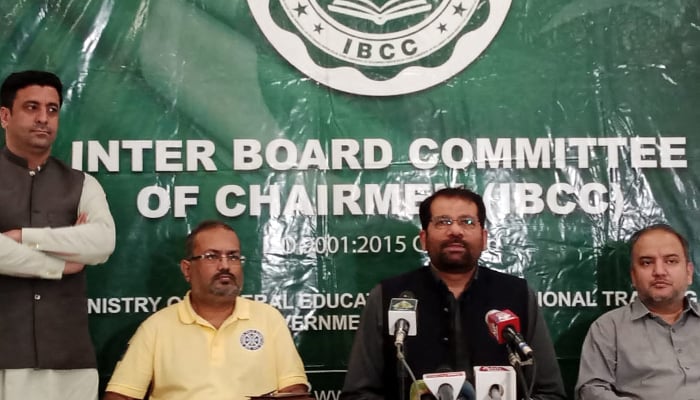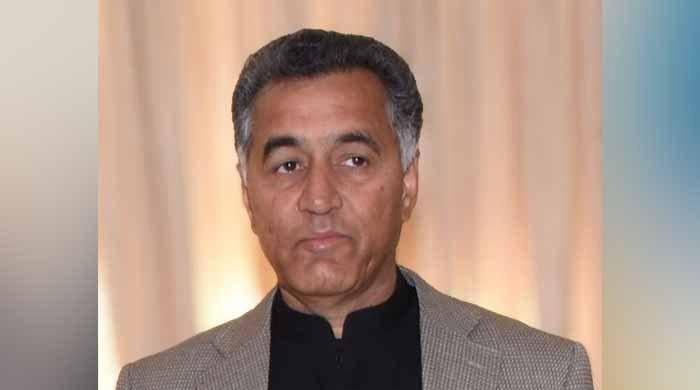IBCC says its reforms set to 'transform education system'
"These reforms are set to transform the education system and simplify processes for all the stakeholders"
May 20, 2023

Inter Board Committee of Chairmen (IBCC) Secretary IBCC Dr Ghulam Ali Mallah has said that the body's recently implemented extensive reforms aimed at enhancing administrative efficiency, improving examination procedures, and automating various processes.
"These reforms are set to transform the education system and simplify processes for all the stakeholders including the staff and the students," the IBCC secretary said in a press conference in Karachi on Friday.
While talking about the administrative reforms Dr Mallah said that, the IBCC has obtained ISO 9001:2015 Certification, signifying their commitment to maintaining high-quality standards in their operations.
Additionally, the implementation of the IBCC Act and IBCC Service Rules ensures a structured framework for decision-making and smooth functioning.
He further said that the IBCC has upgraded its office buildings to provide better infrastructure for its operations, ensuring a conducive environment for the workforce.
In addition to this, IBCC has introduced biometric attendance helps to monitor staff attendance effectively. Furthermore, live surveillance systems have been installed in regional offices to enhance security and monitor activities.
SSC and HSSC private students
Dr Mallah also briefed about the examination reforms and said that, in a significant move, the IBCC has opened doors for SSC and HSSC private students to register for the science group.
This development provides greater opportunities for aspiring students, allowing them to pursue science-related subjects.
Moreover, the introduction of two annual exams in a calendar year grants students more flexibility in terms of scheduling their examinations.
Relaxation in exam eligibility
To facilitate students across various age groups, the IBCC has also implemented relaxation in the age limit for exam eligibility.
This change ensures that students have fair opportunities to pursue their desired educational paths, regardless of their age.
In view of the importance of global education, the IBCC has recognised eight new foreign qualifications, opening pathways for international students to seek equivalency in Pakistan.
Additionally, eleven new indigenous qualifications have been recognised, providing recognition and validity to a wider range of local educational programmes.
Shift from absolute marking
In a shift from absolute marking, the IBCC has introduced a grading scheme for examinations.
This change aims to provide a more comprehensive and holistic evaluation of students' performance, focusing on their overall understanding and skill development rather than just numerical scores.
While emphasising the importance of IT Dr Mallah said that the IBCC has taken significant steps to modernise their processes.
The inclusion of all qualifications in the equivalence portal ensures that students can easily access information regarding the equivalence of their qualifications. The establishment of a centralised equivalence database with tracking features allows for efficient record management.
QR code-based equivalence
He added that the IBCC has introduced QR code-based equivalence certificates to simplify the verification process, making it more secure and convenient.
Also, the digital archiving of old records ensures the preservation and easy retrieval of historical data.
Additionally, online fee reconciliation, employee performance monitoring, queue management system (QMS), online leave management system, and an enhanced online portal for attestation have been implemented to streamline various administrative tasks.
He said that, in a recent development, the IBCC's introduction of verifiable attestation using QR codes ensures the authenticity and credibility of attested documents, strengthening the trust of stakeholders in the system.
Dr Mallah is optimistic about the comprehensive reforms implemented by the IBCC and he believes that these reforms are set to have a far-reaching impact on the education sector in Pakistan. The streamlined administrative processes, examination reforms, and automation initiatives will contribute to a more efficient and transparent education system, benefiting students, educational institutions, and other stakeholders alike.









